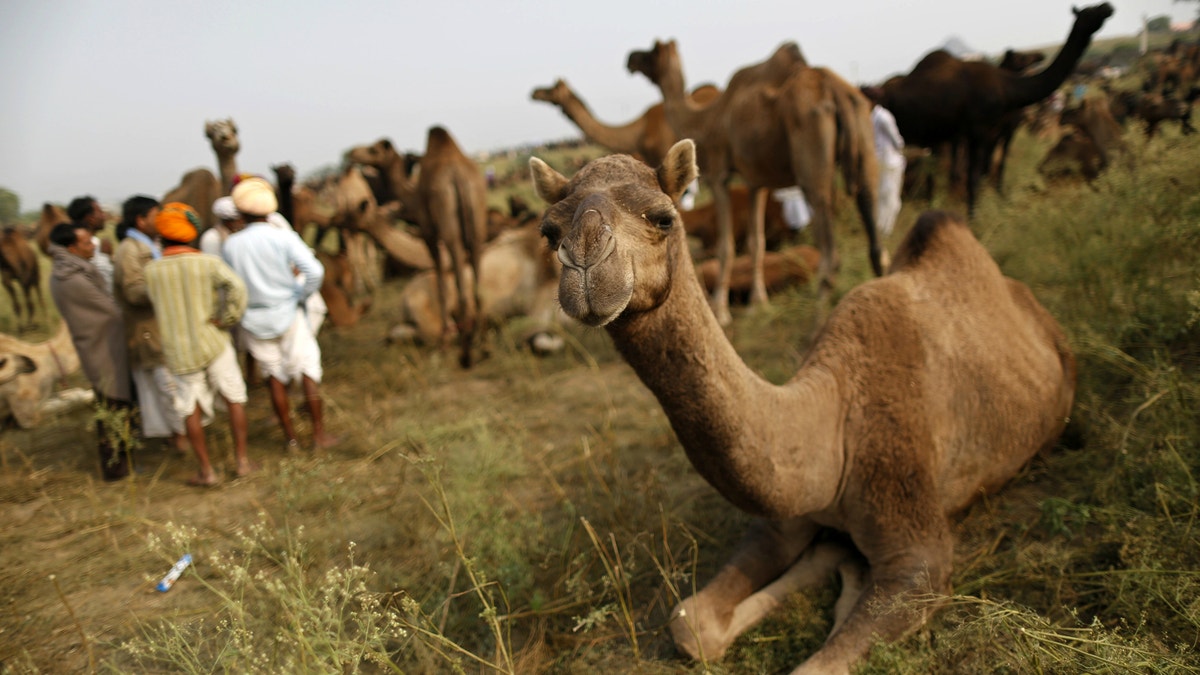
(REUTERS/Ahmad Masood)
Scientists say the mysterious MERS virus has been infecting camels in Saudi Arabia for at least two decades, and early human cases probably went undiagnosed.
Since the Middle East respiratory syndrome coronavirus was first identified in 2012, doctors have struggled to explain how many patients have fallen sick. MERS can cause symptoms including fever, breathing problems and kidney failure. To date, it has infected more than 180 people and killed 79, mostly in the Middle East, though infections have also spread to Europe and northern Africa.
The virus is related to SARS, which killed about 800 people in a global 2003 outbreak. Camels or bats have been suspected as being possible animal reservoirs of MERS but there has been little hard evidence.
In a new paper, researchers took archived blood samples dating back to 1992 from more than 260 camels in Saudi Arabia. They found traces of MERS or a similar virus in samples from the early 1990s to 2010. They also analyzed random samples from about 200 camels, 36 goats and 112 sheep taken in Saudi Arabia last year. Of those, nearly 75 percent of the camels had antibodies to MERS. The researchers found genetic sequences of MERS from camels matched those found in humans.
"It's very plausible that camels are infecting humans, but this study still doesn't tell us exactly how that is happening," said Gregory Hartl, a spokesman for the World Health Organization, which wasn't involved in the study. "We don't know what the high-risk behavior is that is needed for the virus to jump from camels to humans," he said.
Ian Lipkin of Columbia University, who led the research, said MERS appears to have stayed relatively stable since 1992 and guessed that some human cases went unnoticed since the disease is rare and hard to spot without advanced laboratory testing. The paper was published online Tuesday in mBio, the journal of the American Society for Microbiology.
Still, Lipkin warned MERS could still evolve into a form that spreads more easily among people and advised public health officials to take preventive measures in the Middle East, where camels are commonly kept for meat, for racing and as pets.
"We could begin screening camels for the infection and quarantining them, similar to what's done for foot-and-mouth disease," he said. Lipkin added more research is needed on how precisely people are picking up the virus, whether from camels directly or from a contaminated product in the environment. But he said some things can be done to curb infections - for example, avoiding the noses and mouths of camels, where the greatest amount of MERS virus seems to be found.
"There are definitely ways to reduce your risk," he said. "I would try to avoid kissing camels" - a practice said to be common among some who race the animals or keep them as pets.








































